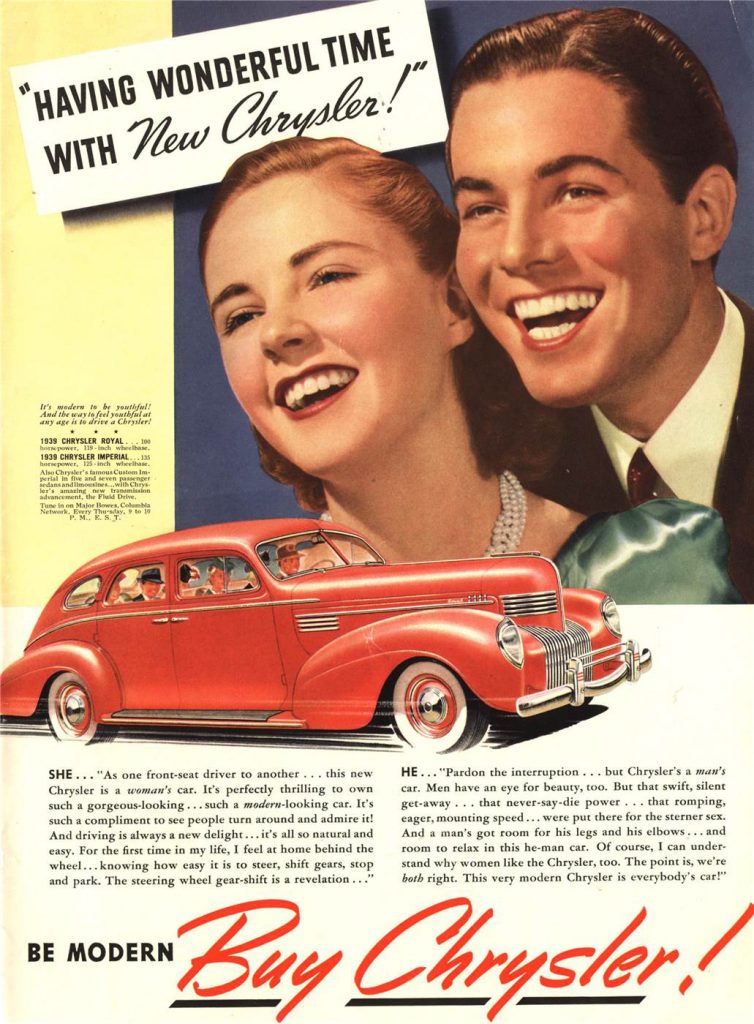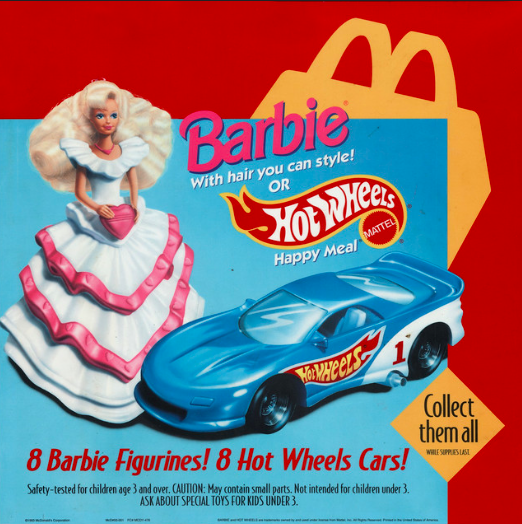
This 1930s Chrysler ad is the perfect example of reinforcing gender roles through media, and advertising. The ad uses highly gendered language for advertising the car to both “she” and “he”. Beginning with the woman-centered approach, the ad states “For the first time in my life, I feel at home behind the wheel”. The generalization that women aren’t good drivers is used to subjugate women and justify their subordination based on the fact that they are not as capable as men. The excerpt titled “She” also calls the car “gorgeous looking”. These two quotes are also based on patriarchal ideas of women’s obsession with personal appearance and beauty. Beauty is essential to the patriarchal standard of a woman. Enforcing very strict beauty standards has always been a tactic used to subjugate and demean used by the patriarchy.
Contrarily the “He” section of the ad is an ode to masculine strength and power. It reads “that swift, silent getaway… that never-say-die power… that romping. eager, mounting speed… were put there for the sterner sex.” This quote is attempting to appeal to men’s sense of masculine dominance. The ad uses physical language such as “swift” “romping” and “speed” to affirm the patriarchal idea of men’s physical superiority.
Advertising particularly aimed toward men and women preys on people’s endless strive to fulfill their prescribed gender role, in order to sell them material goods.


